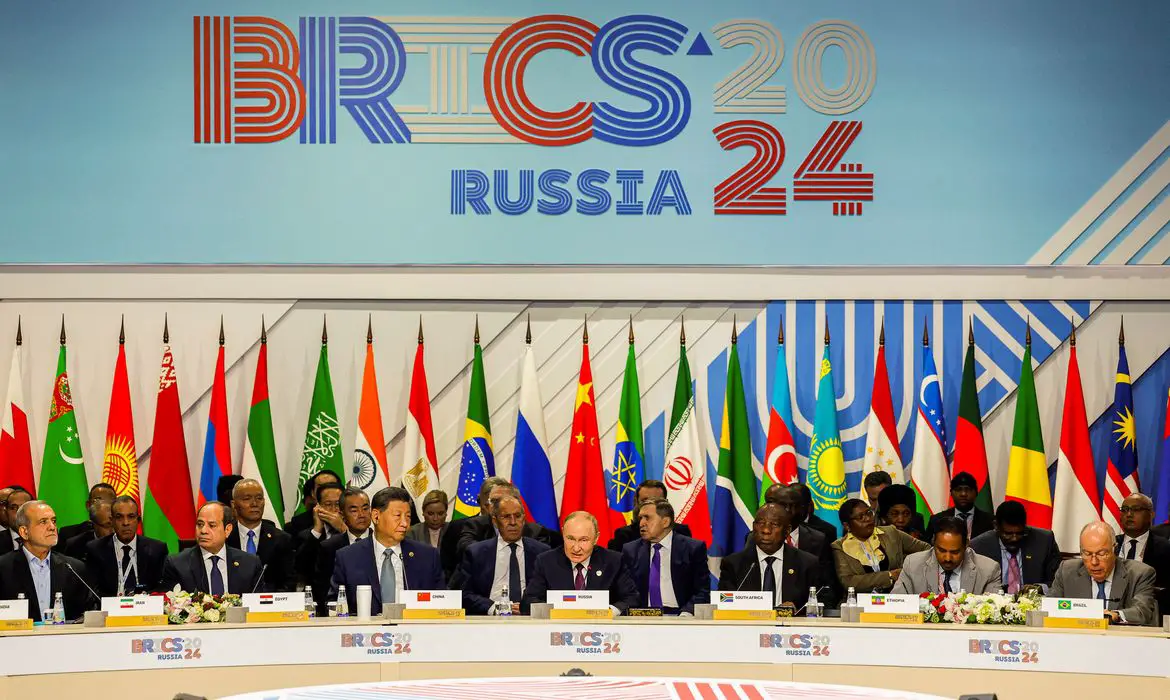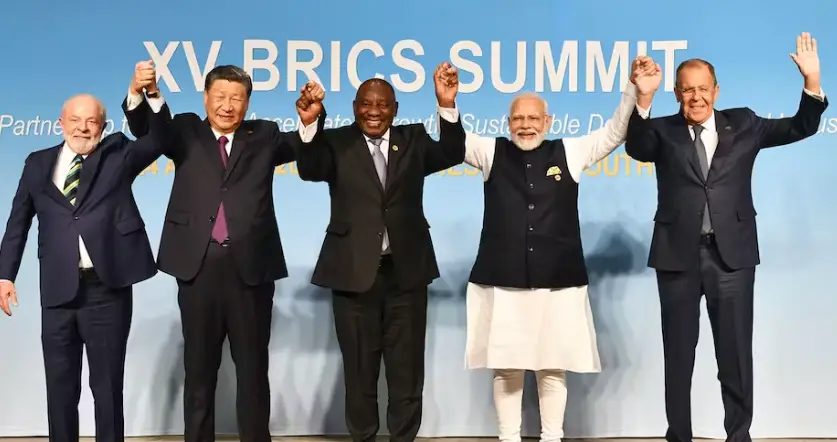In a significant geopolitical shift, Brazil has opted not to participate in China’s Belt and Road Initiative (BRI), following India’s earlier decision to do the same. Under the leadership of President Luiz Inácio Lula da Silva, Brazil aims to navigate its relationship with China without fully committing to the ambitious infrastructure and investment project that has reshaped global trade and economic partnerships since its inception in 2013.
This decision not only reflects Brazil’s cautious approach to foreign investment and international partnerships but also signals broader implications for the BRICS nations and global geopolitical dynamics.
Understanding the Belt and Road Initiative
The Belt and Road Initiative is a global development strategy adopted by China to enhance regional connectivity and embrace a brighter economic future through building infrastructure and broadening trade links. Encompassing over 140 countries, BRI aims to create a modern Silk Road, encompassing land routes (the “Belt”) and maritime routes (the “Road”). The initiative has faced criticism, however, as it has been perceived as a means for China to extend its geopolitical influence through economic dependencies. Critics argue that the BRI often leads to debt traps for participating nations, limiting their sovereignty and increasing their reliance on China.
Celso Amorim, Brazil’s special presidential adviser for international affairs, announced that the nation would not formally join the BRI but instead explore alternative avenues for collaboration with Chinese investors. This decision underscores Brazil’s desire to align its infrastructure development goals with investment funds associated with BRI without the risks and commitments that full participation entails. The motivation behind Brazil’s reluctance includes concerns about immediate economic benefits and the potential implications for relations with the United States, particularly under the previous Trump administration, which had a strong anti-China stance.
Lula’s administration seeks to avoid the pitfalls that have befallen other countries heavily involved in BRI projects, which often face criticism for environmental degradation, lack of transparency, and inadequate labor practices. By choosing to engage with China selectively, Brazil aims to protect its interests while still leveraging the significant investment potential China offers.
The BRICS bloc, consisting of Brazil, Russia, India, China, and South Africa, has long been seen as a counterweight to Western influence in global affairs. However, the recent decisions of both Brazil and India to opt out of BRI participation indicate a shift in the alliance’s dynamics. Each BRICS nation has distinct geopolitical priorities and economic strategies, leading to diverging interests within the group.

The Trailblazer in Declining BRI
India’s decision to decline participation in the BRI was primarily driven by security concerns, particularly regarding the China-Pakistan Economic Corridor (CPEC), which runs through territory that India claims as its own. Indian officials have voiced concerns that CPEC not only undermines India’s territorial integrity but also serves as a strategic foothold for Chinese influence in South Asia.
India’s caution in engaging with China extends beyond BRI; it reflects a broader strategy to strengthen its alliances with Western nations, including the United States and Japan, particularly within the Quad framework. This pivot underscores India’s determination to maintain its strategic autonomy and counterbalance China’s growing assertiveness in the Indo-Pacific region.
The decisions of Brazil and India to decline participation in the BRI suggest a potential fracturing of the BRICS alliance. While China has been a key partner for many of these nations, the growing concerns about economic dependency and political sovereignty are reshaping their relationships. This fragmentation could lead to a more multipolar world, where nations prioritize their national interests over collective alliances.
China’s dominance within the BRICS framework may also be challenged as other member states, such as South Africa and Russia, reassess their positions in light of Brazil and India’s decisions. If the BRICS nations are unable to present a united front on economic and geopolitical issues, their ability to influence global governance may diminish.
Economic Implications for Brazil and the Region
Brazil’s decision to decline participation in the BRI carries significant economic implications for the country and the broader region. China has been a vital trade partner for Brazil, with Chinese investments playing a crucial role in various sectors, including agriculture, mining, and infrastructure. By opting out of the BRI, Brazil may limit its access to Chinese funding for crucial infrastructure projects that could drive economic growth.
Despite declining BRI participation, Brazil aims to maintain its economic relationship with China by seeking alternative pathways for collaboration. The Lula administration has signaled its intention to align domestic infrastructure projects with investment funds linked to the BRI while ensuring that Brazil retains control over these projects and their outcomes.
This strategy could involve creating frameworks that allow for collaboration without fully committing to the BRI. For instance, Brazil may seek to engage in bilateral agreements with Chinese firms on specific projects, ensuring that Brazilian interests are safeguarded and that investments align with national priorities.
Brazil’s decision also has implications for its neighbors in Latin America. Countries like Argentina and Chile have embraced BRI projects to varying degrees, leading to a potential divergence in regional economic strategies. Brazil, as the region’s largest economy, plays a pivotal role in shaping the Latin American economic landscape, and its choice to decline BRI participation may influence how other countries perceive and engage with Chinese investments.
As Brazil navigates its relationship with China, it may also seek to enhance ties with other regional partners, including those in the Americas and beyond. Strengthening trade relationships with countries such as the United States may be crucial for Brazil, particularly in diversifying its economic partnerships and reducing dependence on Chinese investments.

Repercussions Beyond BRICS
The implications of Brazil’s and India’s decisions extend far beyond the BRICS alliance, impacting global geopolitics in several ways.
As Brazil and India choose to distance themselves from the BRI, the United States may see an opportunity to strengthen its influence in the region. The Biden administration has been actively seeking to counter China’s growing presence in Latin America and South Asia by reinforcing partnerships with key nations. This shift aligns with U.S. interests in promoting democratic governance, enhancing regional security, and fostering economic growth through infrastructure investment without the strings often attached to Chinese funding.
Brazil’s and India’s rejections of the BRI signal a shift towards a more multipolar world order. As countries increasingly prioritize their national interests and seek to avoid economic dependencies, we may see a fragmentation of traditional alliances and the emergence of new partnerships based on shared goals. This trend could lead to a more competitive global landscape, where nations maneuver strategically to protect their sovereignty and interests.
With Brazil and India declining participation in the BRI, there is a potential gap in infrastructure investment that could be filled by alternative initiatives. The United States and its allies have recognized the need for a robust response to China’s BRI, leading to proposals for initiatives such as the Blue Dot Network and the Build Back Better World initiative. These efforts aim to promote high-quality infrastructure development and investment while ensuring transparency, sustainability, and accountability.
By fostering these alternative initiatives, the U.S. and its allies may create an environment in which countries feel empowered to pursue infrastructure projects that align with their national priorities without succumbing to economic pressures from China.
Brazil’s decision to decline participation in China’s Belt and Road Initiative marks a pivotal moment for both the nation and the broader BRICS alliance. As geopolitical dynamics continue to shift, the implications of this decision will reverberate throughout Latin America and beyond.
The divergent paths taken by Brazil and India underscore the complexities of navigating relationships with major powers while prioritizing national interests. As countries increasingly seek to assert their sovereignty and avoid economic dependencies, the global geopolitical landscape is evolving towards a more multipolar order.
In this new era, Brazil’s selective engagement with Chinese investments may set a precedent for other nations facing similar dilemmas. The outcomes of these strategic decisions will shape the future of international relations and the intricate web of alliances that define global governance. As the world grapples with the implications of these shifts, the landscape of economic collaboration and geopolitical influence will continue to evolve, presenting both challenges and opportunities for nations navigating the complexities of a rapidly changing global environment.



